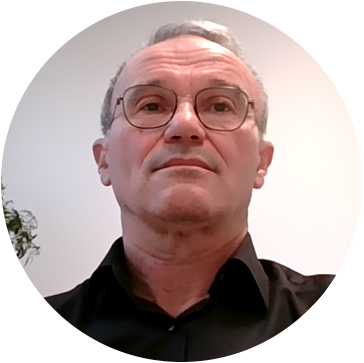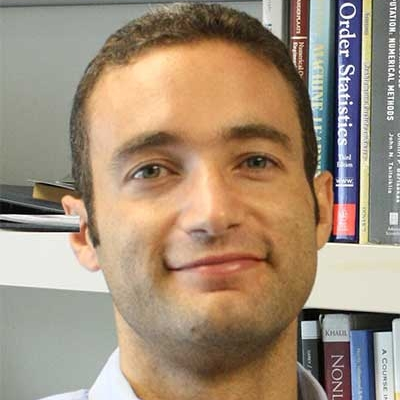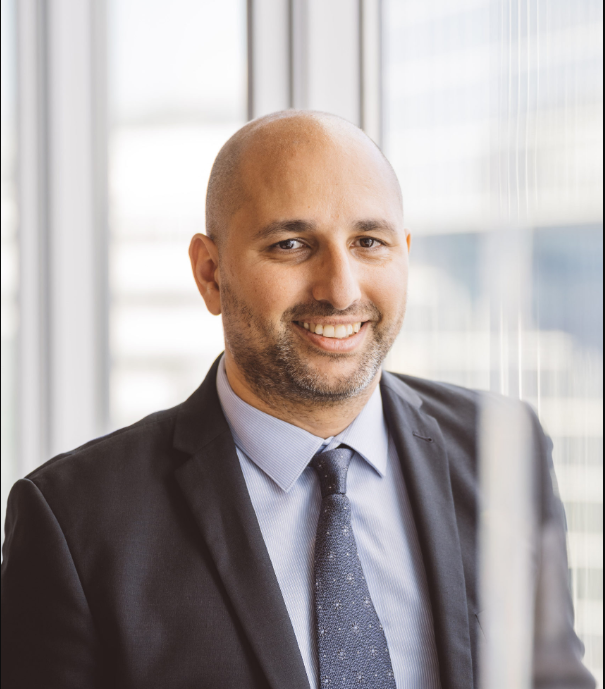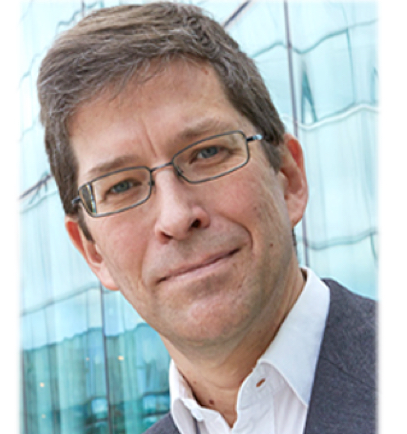
Jean-Claude Belfiore
Director of the Advanced Wireless Technology Lab
Huawei, Paris
6G needs a toposic view of AI : languages, spaces of semantic information, equivariance, learning by concepts and logic
Abstract:
Compared to humans and animals, “intelligent” machines are very slow to learn, require a large amount of data, do not understand what they are doing, make stupid mistakes, do not reason have no common sense. Moreover, how can we standardize techniques that give no guarantee, that cannot even be represented in a compact way. Energy consumption is also a main issue. All these drawbacks are critical for 6G. Is there a way to overcome them? All these issues are related to the absence of semantics in nowadays machine learning. Is it possible, for a new architecture of machine to learn as quickly as a baby? With very few data? To “understand”? To reason? We aim at giving some answers to these questions by developing a theoretical point of view and applying it to experiments to show the effectiveness of our theory. This theory is based on a mathematical notion proposed by Alexander Grothendieck in the 60’s, the notion of topos. I will present how this notion helped us to develop a new theory of semantic information, how a generalized notion of equivariance just corresponds, in the right topos, to regular functions, how it is possible to learn by concepts and approach the way a baby can learn and finally, how toposes are related to logics. All these aspects will be presented both theoretically and experimentally.
Bio:
Jean-Claude Belfiore graduated from Ecole Supérieure d'Electricité (Supelec), got his PhD from Telecom Paris and the Habilitation from Université Pierre et Marie Curie (UPMC). Until 2015, he has been with Telecom Paris as a full Professor in the Communications & Electronics department. In 2015, he joined the Mathematical and Algorithmic Sciences Lab of Huawei as the head of the Communication Science Department and now the Director of Wireless Technology Lab, Paris. Jean-Claude Belfiore has made pioneering contributions in modulation and coding for wireless systems (especially space-time coding) by using tools of number theory. He is also one of the co-inventors of the celebrated Golden Code of the Wi-Max standard. Jean-Claude Belfiore is author or co-author of more than 200 technical papers and communications and has served as an advisor for more than 30 Ph.D. students. He was Associate Editor of the IEEE Transactions on Information Theory for Coding Theory and has been the recipient of the 2007 Blondel Medal. In Huawei, he has been involved in 5G standardization process, essentially in Channel Coding (Polar Codes for 5G). He is now working in wireless 6G, on artificial reasoning and future wireless networks for intelligent machines. Since July 2021 he is also the director of the Huawei Advanced Wireless Technology Lab. in Paris.

Osvaldo Simeone
King’s College London,
Chair of the UK and Ireland Chapter of the IEEE Information Theory Society, England
How To Know When You Don’t Know: AI for Engineering and 6G Download
Abstract:
In complex engineered systems, data-driven decision making must rely on well-calibrated estimates of uncertainty to ensure safe and reliable operation. An example is given by digital twin platforms for the optimization and monitoring of 6G systems. However, conventional deep learning-based artificial intelligence (AI) solutions tend to be poorly calibrated, often failing to recognize when producing unreliable outputs. In this talk, I will argue that designing well-calibrated AI for engineering requires the development and implementation of new algorithmic frameworks that incorporate tools from statistics and information theory, along with innovative uses of emerging computing platforms that can efficiently control and represent randomness. Examples of algorithmic and methodological advances will be given from recent work by my group, encompassing Bayesian learning, conformal prediction, neuromorphic computing, and quantum machine learning.
Bio:
Osvaldo Simeone is a Professor of Information Engineering with the Centre for Telecommunications Research at the Department of Engineering of King's College London, where he directs the King's Communications, Learning and Information Processing lab. He received an M.Sc. degree (with honors) and a Ph.D. degree in information engineering from Politecnico di Milano, Milan, Italy, in 2001 and 2005, respectively. From 2006 to 2017, he was a faculty member of the Electrical and Computer Engineering (ECE) Department at New Jersey Institute of Technology (NJIT). His research interests include information theory, machine learning, wireless communications, neuromorphic computing, and quantum machine learning. Dr Simeone is a co-recipient of the 2022 IEEE Communications Society Outstanding Paper Award, the 2021 IEEE Vehicular Technology Society Jack Neubauer Memorial Award, the 2019 IEEE Communication Society Best Tutorial Paper Award, the 2018 IEEE Signal Processing Best Paper Award, the 2017 JCN Best Paper Award, the 2015 IEEE Communication Society Best Tutorial Paper Award and of the Best Paper Awards of IEEE SPAWC 2007 and IEEE WRECOM 2007. He was awarded an Open Fellowship by the EPSRC in 2022 and a Consolidator grant by the European Research Council (ERC) in 2016. Prof. Simeone is the author of the textbook "Machine Learning for Engineers" published by Cambridge University Press. He is a Fellow of the IET, EPSRC, and IEEE.

Mérouane Debbah
Chief Researcher at the Technology Innovation Institute in Abu Dhabi,
Professor at Centralesupelec, France
Large Language Models for wireless: the next big thing?
Abstract:
Large Language Models (LLMs) have shown remarkable success in natural language processing (NLP) tasks, such as language translation, text summarization, and sentiment analysis. They can also help in identifying network faults, improving network security, and facilitating spectrum sharing. LLM-based solutions can be trained on large-scale datasets to capture the heterogeneity and diversity of wireless networks. These models can be deployed on resource-limited devices, such as smartphones, to provide intelligent wireless services. Based on our recent announcement of FALCON LLM in march 2023 (https://www.itp.net/emergent-tech/uae-owned-ai-language-model-outperforms-chatgpt3), which is a foundational large language model (LLM) with 40 billion parameters, outperforming GPT 3, developed by the AI and Digital Science Research Center at TII, we will discuss our recent progress on LLM features and the potential of FALCON LLM in enabling intelligent wireless communication systems.
Bio:
Mérouane Debbah is Chief Researcher at the Technology Innovation Institute in Abu Dhabi. He is a Professor at Centralesupelec (France) and an Adjunct Professor with the Department of Machine Learning at the Mohamed Bin Zayed University of Artificial Intelligence in Abu Dhabi. He received the M.Sc. and Ph.D. degrees from the Ecole Normale Supérieure Paris-Saclay, France. He was with Motorola Labs, Saclay, France, from 1999 to 2002, and then with the Vienna Research Center for Telecommunications, Vienna, Austria, until 2003. From 2003 to 2007, he was an Assistant Professor with the Mobile Communications Department, Institut Eurecom, Sophia Antipolis, France. In 2007, he was appointed Full Professor at CentraleSupelec, Gif-sur-Yvette, France. From 2007 to 2014, he was the Director of the Alcatel-Lucent Chair on Flexible Radio. From 2014 to 2021, he was Vice-President of the Huawei France Research Center. He was jointly the director of the Mathematical and Algorithmic Sciences Lab as well as the director of the Lagrange Mathematical and Computing Research Center. Since 2021, he is leading the AI & Digital Science Research centers at the Technology Innovation Institute. He has managed 8 EU projects and more than 24 national and international projects. His research interests lie in fundamental mathematics, algorithms, statistics, information, and communication sciences research. He holds more than 40 patents. He is an IEEE Fellow, a WWRF Fellow, a Eurasip Fellow, an AAIA Fellow, an Institut Louis Bachelier Fellow and a Membre émérite SEE. He was a recipient of the ERC Grant MORE (Advanced Mathematical Tools for Complex Network Engineering) from 2012 to 2017. He was a recipient of the Mario Boella Award in 2005, the IEEE Glavieux Prize Award in 2011, the Qualcomm Innovation Prize Award in 2012, the 2019 IEEE Radio Communications Committee Technical Recognition Award and the 2020 SEE Blondel Medal. He received more than 25 best paper awards, among which the 2007 IEEE GLOBECOM Best Paper Award, the Wi-Opt 2009 Best Paper Award, the 2010 Newcom++ Best Paper Award, the WUN CogCom Best Paper 2012 and 2013 Award, the 2014 WCNC Best Paper Award, the 2015 ICC Best Paper Award, the 2015 IEEE Communications Society Leonard G. Abraham Prize, the 2015 IEEE Communications Society Fred W. Ellersick Prize, the 2016 IEEE Communications Society Best Tutorial Paper Award, the 2016 European Wireless Best Paper Award, the 2017 Eurasip Best Paper Award, the 2018 IEEE Marconi Prize Paper Award, the 2019 IEEE Communications Society Young Author Best Paper Award, the 2021 Eurasip Best Paper Award, the 2021 IEEE Marconi Prize Paper Award, the 2022 IEEE Communications Society Outstanding Paper Award, the 2022 ICC Best paper Award, the 2022 IEEE GLOBECOM Best Paper Award, 2022 IEEE TAOS TC Best GCSN Paper Award, the 2022 IEEE International Conference on Metaverse Best Paper Award as well as the Valuetools 2007, Valuetools 2008, CrownCom 2009, Valuetools 2012, SAM 2014, and 2017 IEEE Sweden VT-COM-IT Joint Chapter best student paper awards. He is an Associate Editor-in-Chief of the journal Random Matrix: Theory and Applications. He was an Associate Area Editor and Senior Area Editor of the IEEE TRANSACTIONS ON SIGNAL PROCESSING from 2011 to 2013 and from 2013 to 2014, respectively. From 2021 to 2022, he served as an IEEE Signal Processing Society Distinguished Industry Speaker.

Stefan Parkvall
Senior Expert at Ericsson Research and visiting researcher at University of California
Stockholm, Sweden
6G – the intelligent network platform of 2030 Download
Abstract:
The first release of 5G NR have been successfully standardized by 3GPP and commercial networks are being rolled out around the globe. 5G will continue to evolve for many years to come with the recently completed releases 16 and 17 being the first steps and 5G Advanced around the corner. In parallel, the research community have begun initial discussions on 6G and wireless communication in 2030 and beyond. At that point, society will have been shaped by 5G for 10 years, and new needs and services will have appeared. Even with the built-in flexibility of 5G, we are beginning to see the horizon where further capabilities are needed. In this talk we will discuss fundamental drivers, possible use cases, basic capabilities, and potential key technologies for a future 6G system. Such a system will go beyond connectivity alone and will be a trusted platform for communication and compute, encouraging innovation and serving as the information backbone of society.